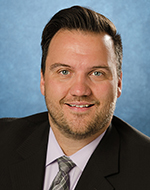Page Content
My eyes ope ned wide and I drew a long, slow breath as my principal laid out the list of detailed criteria that he would be using to evaluate me the following week.
ned wide and I drew a long, slow breath as my principal laid out the list of detailed criteria that he would be using to evaluate me the following week.
A young first-year teacher, I was initially intimidated by all of the things that I needed to demonstrate for the upcoming observation of my lesson.
I had seen the Teaching Quality Standard in university, but it wasn’t made real for me until that moment. I took the criteria home, reviewed it and checked it against the lesson plan I was intending to deliver.
Sure, I could demonstrate that I understood the subject discipline, that students learn differently and how to assess a range of learning objectives, but could I demonstrate an analysis of a long list of contextual variables, or an understanding of the legislated, moral and ethical frameworks within which I worked?
Fortunately, my lesson went well and, fortunately, my principal based his evaluation on more than a single observation of my lesson. By the end of the year, I was recommended for a continuous contract.
The process felt very open, fair and reasonable — largely because I had a clear definition of the standard I was being measured by.
In 1997, Alberta’s Teaching Quality Standard (TQS) was the first of its kind in Canada. Now, 20 years later, we have an updated TQS. It is an important document because it provides the bedrock on which the entire system of teacher quality assurance is built.
Our Teacher Growth, Supervision and Evaluation policy is a fine policy that has served Alberta’s teachers, students and the public education system very well. It is based on trust, professionalism and collegiality. Many international experts say that Alberta’s regard for the professionalism of teachers is why our system performs so well.
The TQS has a clear set of competencies and indicators that teachers are expected to meet throughout their careers. These are fair and objective criteria to be used throughout the teacher growth, supervision and evaluation process.
We are often subjected to tired and misinformed charges that bad teachers are protected or hard to get rid of, including from some former ministers of education. However, the charges are often rooted in a mythical narrative that has pervasively followed our profession around the world and throughout time, despite good evidence to the contrary.
I hope that the passing of an updated TQS, along with the introduction of the leadership and superintendent leadership standards, can allow us to highlight the comprehensive system of teacher quality assurance that we have in place in Alberta.
Teachers are extensively evaluated as they enter the profession in order to gain continuous employment and earn permanent certification. After that, they are actively supervised by principals who collect data from a variety of sources. They also commit to ongoing continuous professional learning and growth in order to ensure that teaching quality is continuously advancing.
If a principal has reason to believe that a teacher is no longer meeting standards, they can initiate an evaluation at any time. Processes following a poor evaluation can lead to a program of remediation, loss of employment or even loss of certification through the Association’s practice review process.
Teachers do not shy away from these obligations and commitments. We are professionals, and as the professional association of teachers, the ATA is committed to upholding high standards of practice.
Our system of teacher growth, supervision and evaluation is fair and thorough, and it is based on trust and professionalism. But it is all built upon the foundation provided by the Teaching Quality Standard.
Correction
Mea culpa. Last week, in my tribute to the now retired executive secretary, Gordon Thomas, I wrote that I took the record of youngest ATA staff officer hired from Dr. Thomas. After reading the article, he informed me that the record actually belongs to Mary-Jo Williams, hired in 1969. I’m not sure where I got the false information from, and I regret that it was published.
Of course, my ability to fact-check this article was hampered by the fact that my go-to fact-checker was also the subject of the article. My sincere apologies to Dr. Williams. ❚
I welcome your comments—contact me at jonathan.teghtmeyer@ata.ab.ca.
